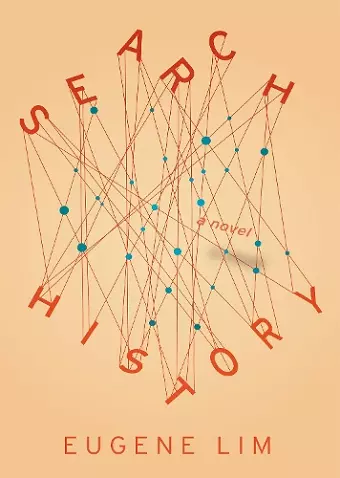Search History
Format:Paperback
Publisher:Coffee House Press
Published:18th Nov '21
Should be back in stock very soon

Search History oscillates between a wild cyberdog chase and lunch-date monologues as Eugene Lim deconstructs grieving and storytelling with uncanny juxtapositions and subversive satire.
Frank Exit is dead—or is he? While eavesdropping on two women discussing a dog-sitting gig over lunch, a bereft friend comes to a shocking realization: Frank has been reincarnated as a dog! This epiphany launches a series of adventures—interlaced with digressions about AI-generated fiction, virtual reality, Asian American identity in the arts, and lost parents—as an unlikely cast of accomplices and enemies pursues the mysterious canine. In elliptical, propulsive prose, Search History plumbs the depths of personal and collective consciousness, questioning what we consume, how we grieve, and the stories we tell ourselves.
Praise for Search History
A Bustle Best Book of October 2021
A Literary Hub Most Anticipated Book of 2021
A Millions Most Anticipated Book of 2021
“Fans of Haruki Murakami’s melancholy, oneiric tales will also delight in Lim’s assault upon consensus reality.” —Paul Di Filippo, The Washington Post
“Sometimes new works arrive, such as Eugene Lim’s strange, sinuous, highly memorable novel Search History that seem to herald some dawning technological epoch. . . . A work of eerie and lasting power.” —Sam Sacks, The Wall Street Journal
“As the book toggles between the narrator’s autobiography, a meandering quest for the friend, and conversations among the search party about grief, selfhood, and Asian American authorship, Lim evokes the disorienting idiosyncrasy of an Internet search history.” —The New Yorker
“A post-human manifesto on loss, identity, and the transfigurative potential of art. . . . This brilliant sui generis takes storytelling to new heights.” —Publishers Weekly, starred review
“Lim brings together the mundane and the extraordinary to powerful effect.” —Kirkus, starred review
“The construction of self and identity and the transformative nature of art underpin a work that, despite being clothed in clever satire and searing humor, is a tender exploration of how we love and what we consequently risk losing, of death and its aftermath, grief.” —Justine Hyde, Saturday Paper
“Search History is a living, breathing novel. Its fascinations and enthusiasms are important yet ambivalent. . . . An Ode to Joy in Autotune.” —Joseph Houlihan, Chicago Review of Books
“Often simultaneously hilarious and devastating, Search History is an adventure story that offers profound insight into grief and grieving in the contemporary era.” —Spencer Quong, Poets & Writers
“A rabbit hole of grief and humor in equal measure.” —Katie Yee, Literary Hub
“A delightfully strange little book.” —K.W. Colyard, Bustle
“Search History is filled with serious and intelligent musings on the many topics it covers, but its defining characteristic is that it is a genuinely fun read.” —Michael Wong, Heavy Feather Review
"Looking for hope amid our capitalist doom, I read Search History with that exhilarating comfort I’ve felt in the best artists of their times, Petronius to Perec, Rabelais to Rizal—all of whom demonstrate a bracing commitment to challenging our ideological norms by testing without fear our art’s forms.” —Gina Apostol
“Search History is utterly original, from its opening pages to its final sentences.” —John Keene
“Search History is a luminous, peerless work that establishes Lim as one of the best-suited authors to write about our distinct moment of environmental decay amidst technological advancement. A heartfelt delight from start to finish.” —Meghana Kandlur
ISBN: 9781566896177
Dimensions: unknown
Weight: unknown
152 pages